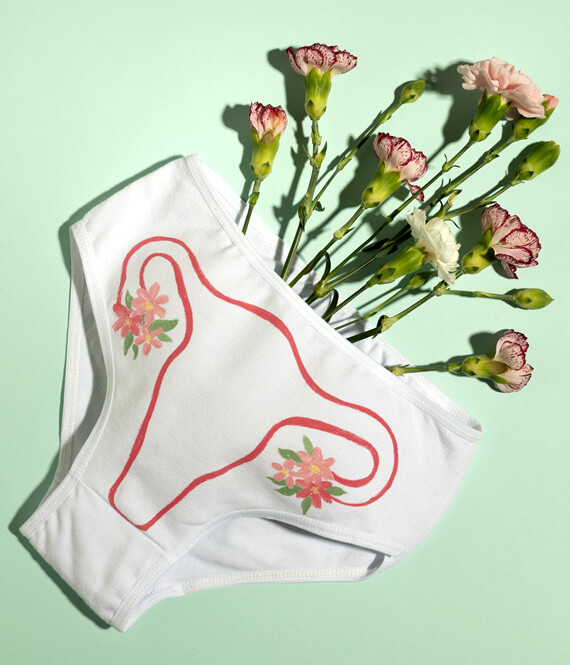
How To Reduce PMS Symptoms Naturally: 10 Easy Things To Try
We recommend helpful products in our articles. Read our full disclosure here. The content on this website is not intended to be a substitute for professional advice, diagnosis, or treatment.

“How to reduce PMS symptoms naturally?
Every month before my period, I feel angry, bloated, and sad.”
Premenstrual Syndrome or PMS represents a series of physical and emotional symptoms that 90% of women go through 7 to 14 days prior to their menstrual period.
In the majority of cases, women experience a couple or more of these symptoms leading to a milder or more intense disruption in their daily life.
If you’re a woman, you know how it goes.
It’s two (or a little less) weeks until your period and you slowly start to feel like… Not yourself.
You wake up tired in the morning and nothing seems to help to get that energy you need so bad, not even extra cups of coffee.
You feel sluggish and sensitive, and even that fluffy and comfy sweater you love doesn’t feel so soft anymore (“Need something softer!!”).
Your breasts get heavier and painful to the point that even putting on a bra makes you mad.
Everything starts to feel irritating, and you can’t stand your colleagues giggling anymore because you just want a little bit of peace.
To make things even better, you start to feel bloated and unhappy with what you see in the mirror.
You can’t choose what to wear in the morning because “everything looks bad!”.
You try to move on with your day, but it’s so hard because you’re also crushed with a bad mood, increased anxiety, and depressive thoughts.
Sounds familiar?
It might, or might not.
Women feel PMS differently and you may feel exactly like I described, you may feel somewhat similar, but not as intense, or you may feel like the things I have mentioned are just the tip of your PMS iceberg.
Today I want to help you understand why you feel like that when you have PMS and how to reduce PMS symptoms naturally.
What Are The Main PMS Symptoms?
PMS symptoms are both physical and emotional and they can differ in intensity depending on each woman, her lifestyle habits, emotional wellness, and genetics.
The physical symptoms of PMS
- Excessive tiredness and an overall sense of lack of energy that occurs during mid-cycle every month;
- Sore breasts, that can slightly swell prior to the menstrual period;
- Cramping that can lead to mild or severe pain;
- Headaches that range in intensity from mild to severe (also, those that suffer from migraines experience even worse PMS headaches);
- A tendency to overeat, increased appetite, and cravings for comfort food;
- Fluid retention and bloating;
- Muscle pain;
- Acne breakouts.
Emotional and mental symptoms of PMS
- An overall sense of anxiety and tension;
- An intense feeling of sadness;
- Recurrent mood swings with a constant tendency of irritability;
- Difficulties in concentrating and performing daily tasks;
- Feeling insecure and “unattractive”.
What Causes PMS?
A woman’s body is a complex machine, which is why there are several factors involved in the appearance of PMS symptoms.
The most influential aspect of PMS is hormone fluctuations that happen every month.
Your estrogen and progesterone levels rise and drop, rise and drop during different stages of your cycle and they are also responsible for all those symptoms mentioned above.
It’s important to know this because it may save you lots of unnecessary, negative self-talk if you understand that sometimes the things you do, or the thoughts you think are simply influenced by these hormones taking you over.
A great way to notice the effects of hormones is to track your menstrual cycle.
It can help you decide if the thoughts you’re having or the bad moods you’re experiencing are only related to your cycle.
You can use my free minimalistic period tracker to start tracking your periods right away.
Other things that might cause more prominent PMS include an unbalanced diet, lack of exercise, a highly stressful life, and erratic sleeping behaviors.
Now that we know what PMS is and how it manifests in our physical and mental health, let’s talk about how to reduce PMS symptoms naturally, so you can feel less bloated, tired and sad.
How To Reduce PMS Symptoms Naturally With Nutrition
Add Omega-3 Fats To Your Diet
Studies have shown that a diet rich in omega-3 fatty acids can diminish a whole bundle of recurrent PMS symptoms.
Omega-3 has a significant impact on depression, nervousness, anxiety, concentration issues, headaches, and tender breasts.
The best part?
You can’t get this beneficial acid naturally, just by choosing particular foods.
To get enough Omega-3 in your diet, eat fatty fish – such as wild salmon, tuna, mackerel, cod liver, sardines and consider adding flax seed to your dietary routine.
Following an omega-3-rich diet for a couple of months can lead to a significant decrease in PMS symptoms.
Add More Magnesium To Your Diet
Magnesium is responsible for our mood and physical wellbeing.
A good amount of this mineral can support hormones, relax tense muscles, help with sleep problems, and lower PMS symptoms as well.
A couple of studies also suggested that women who experience regular PMS symptoms have a lower magnesium concentration in their body, so it’s a good idea to up your magnesium intake when you feel like PMS is taking over.
To consume more magnesium, eat magnesium-rich foods like leafy greens, nuts, bananas, avocados, whole grains, legumes, and seafood.
Get Enough Calcium Too!
Calcium plays a vital role in the functioning of the nervous, muscular, and endocrine (hormonal) systems, all of which are involved in the symptoms of PMS.
Research has suggested that calcium levels fluctuate throughout a woman’s menstrual cycle, with the lowest levels occurring during the time when PMS symptoms would be present.
Lower calcium levels can contribute to mood swings, depression, fatigue, and physical symptoms seen in PMS.
A diet high in calcium can help restore proper calcium levels in the body, potentially reducing these symptoms.
For that, eat more dairy products, leafy green vegetables, fish, seeds, nuts, legumes, and figs.
How To Reduce PMS Symptoms Naturally With Fiber
Dietary fiber, particularly soluble fiber, can also help manage some PMS symptoms in a few ways.
First, fiber helps control blood sugar levels by slowing the absorption of sugar into your bloodstream, preventing spikes in blood glucose and insulin levels.
This can help alleviate mood swings and cravings for sweets, which are common PMS symptoms.
Second, fiber can help reduce bloating and constipation, which are common physical symptoms of PMS.
By promoting healthy digestion and regular bowel movements, high-fiber foods can help ease these uncomfortable symptoms.
Lastly, high-fiber diets can help with weight management.
Excess body weight can exacerbate PMS symptoms, so maintaining a healthy weight can be beneficial.
Foods that are rich in fiber are wholegrain foods, fruits, vegetables, berries, and popcorn.
Note: when increasing fiber in your diet, do it gradually to give your body time to adjust, and always drink plenty of water.
Fiber works best when it absorbs water, making your stool soft and bulky.
Try a natural PMS tea or supplement
There’s a tea for everything these days and PMS is not an exclusion.
To balance your body and reduce PMS symptoms naturally, try drinking teas that support a healthy menstrual cycle.

Traditional Medicinals, Healthy Cycle, Caffeine-Free Tea
Avoid Specific Foods
Nutrition can help us feel better during the PMS phase, but it can also affect us negatively.
If you experience bloating with your PMS, consider avoiding specific foods in your diet.
Foods high in calories, salt, and sugar may seem extremely tempting right now, but they can make you feel worse and worsen PMS symptoms like mood swings, headaches, and anxiety.
Add a handful of post-indulgence guilt on top and you have a recipe for PMS disaster!
How To Reduce PMS Symptoms Naturally With Self Care
Add Gentle Exercise To Your Day
Yoga or any other type of exercise has an extremely beneficial effect on our bodies and one of the greatest benefits is increased serotonin production.
Serotonin is especially important for us to maintain a good mood – and women have significantly less serotonin once the PMS kicks in.
Therefore, it’s recommended to do at least a little exercise during your PMS (and yes, I know that it’s the last thing you want to do), to increase serotonin production naturally.
Meditate
Meditation can also be helpful in treating and diminishing PMS mood swings.
Meditating regularly leads to increased feelings of happiness, self-awareness, and diminished stress hormone levels – all of which can also help in this difficult time.

Prioritize Healthy Sleep Regime
Lack of sleep can worsen PMS symptoms, which is why medical practitioners encourage women to get plenty of sleep when they feel PMS symptoms.
Also, consider adding more relaxation techniques to your evening routine to enhance your sleep quality.
Things like massage, enjoying a warm bubble bath or simply cuddling with your loved one, will lower the tension in your body and make you more likely to fall asleep as soon as you get in bed.
How To Reduce PMS Symptoms Naturally Using Heat
Applying heat to the lower abdomen can be a very effective, natural method for reducing certain PMS symptoms, especially cramps.
The heat from a hot water bottle can help to relax the muscles of the abdomen, easing tension and reducing pain.
The heat can also increase blood flow to the area, which can help to alleviate discomfort and promote healing.
For best results, fill a hot water bottle with hot (but not boiling) water and wrap it in a towel or cloth to prevent burns.
Place the hot water bottle on your lower abdomen or lower back, depending on where you’re experiencing discomfort.
You can leave it in place for 15-20 minutes at a time, or as long as it remains warm.
You might find it particularly soothing to use the hot water bottle while lying down and practicing deep breathing exercises or other relaxation techniques.
It’s a simple and non-pharmacological approach that can provide significant relief from PMS-related pain and discomfort.
How To Reduce PMS Symptoms Naturally: Conclusion
Here are a few key takeaways!
- PMS is completely normal and is influenced by hormone fluctuations;
- Every woman experiences PMS symptoms differently;
- It’s totally normal to feel less energetic and moody during your PMS;
- To reduce PMS symptoms naturally, eat a healthy diet rich in vegetables, fruits, fish, wholegrain foods, dairy, legumes, and nuts or seeds;
- Avoid foods rich in salt and sugar to reduce bloating;
- Relaxation techniques, exercise, quality sleep, and self-care can also help you to feel better;
- Using heat therapy can reduce cramps in your lower abdomen or lower back area naturally.
I hope these tips will help you to feel better during PMS and stay happy and energetic when that time of the month kicks in!
Did you enjoy these tips for how to reduce PMS symptoms naturally?
Scroll down for more helpful content below.
"We love to research problems, examine studies, analyze solutions, and share with you ideas that make life healthier. You can learn about us and our editorial standards here. Have suggestions or feedback to share? Send us a message!."



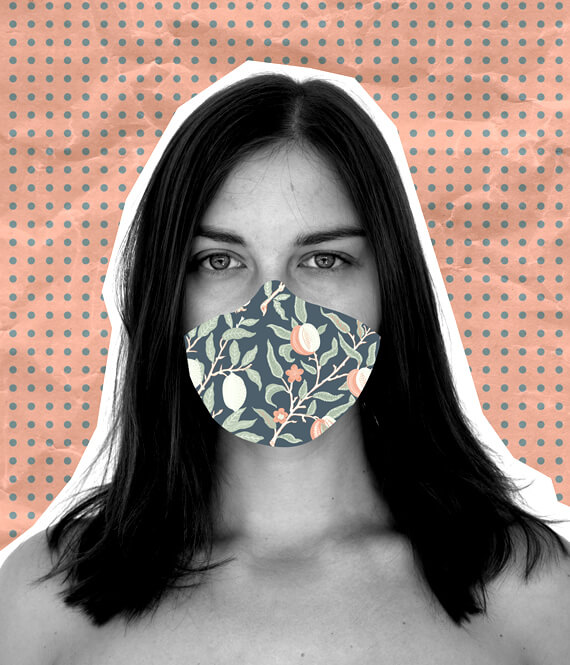

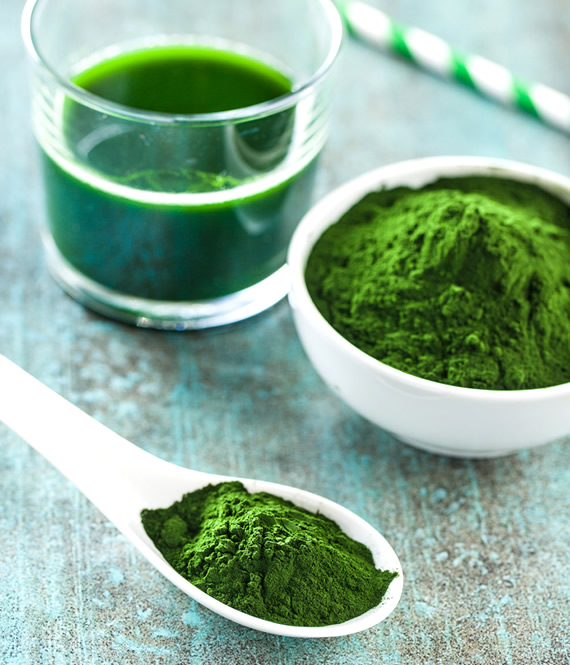



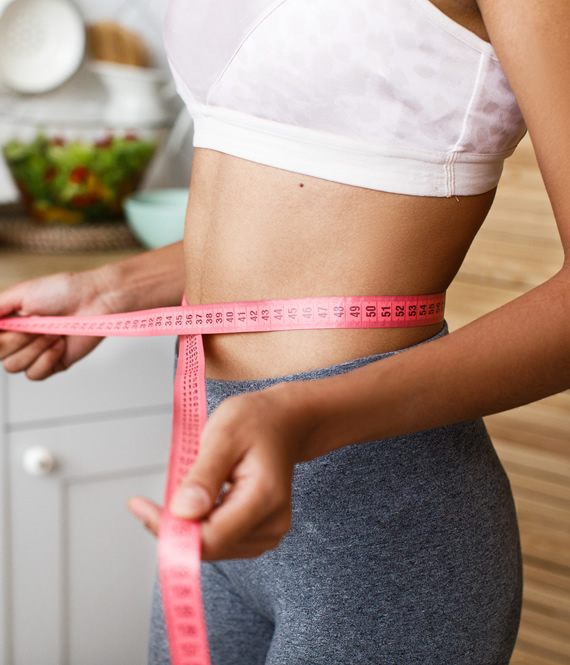

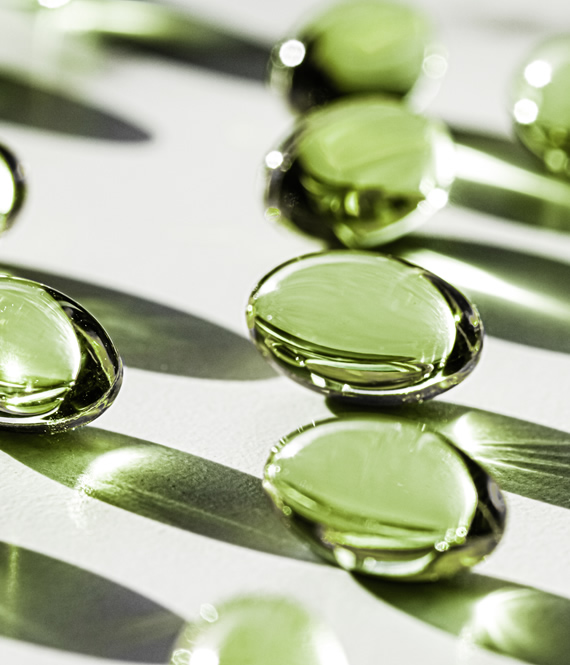
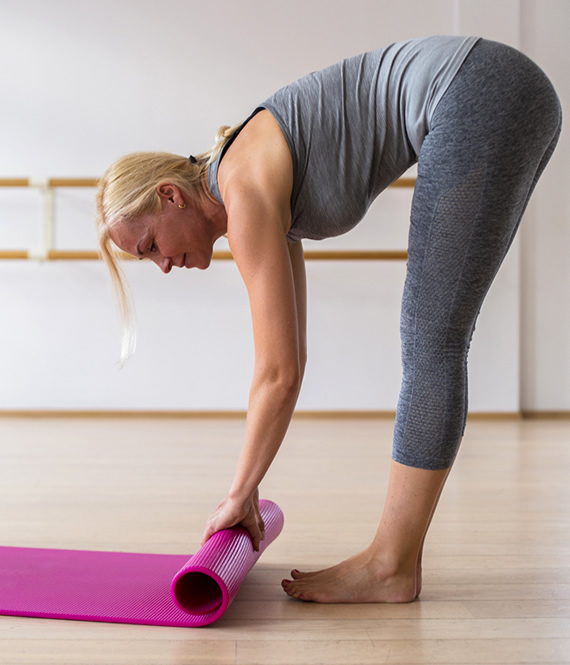
Leave a Comment